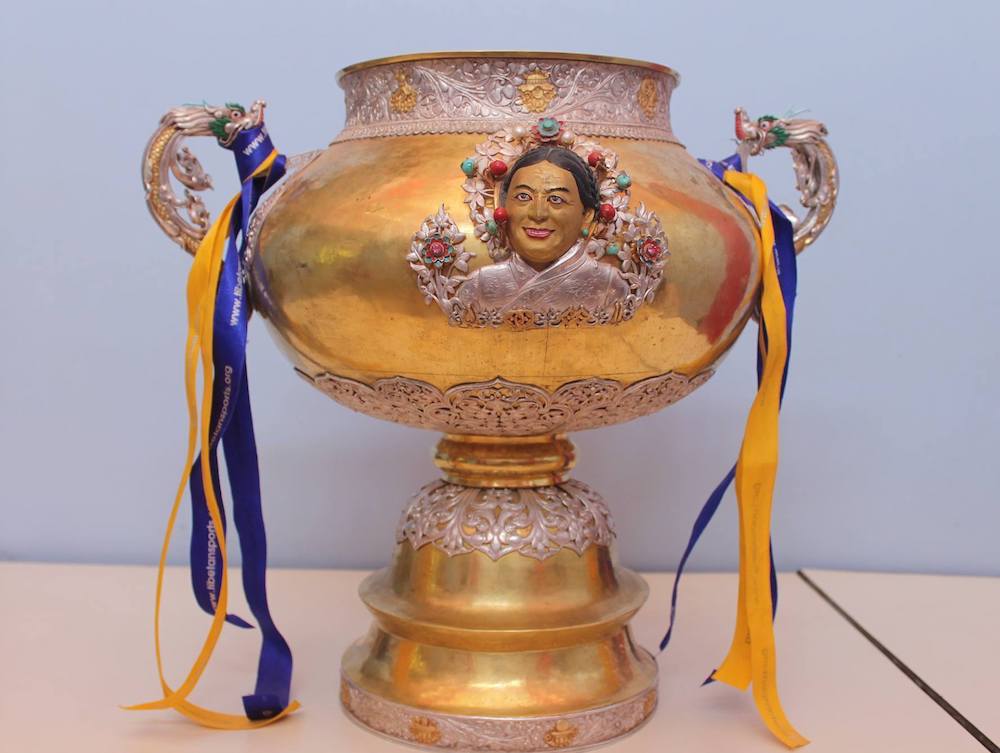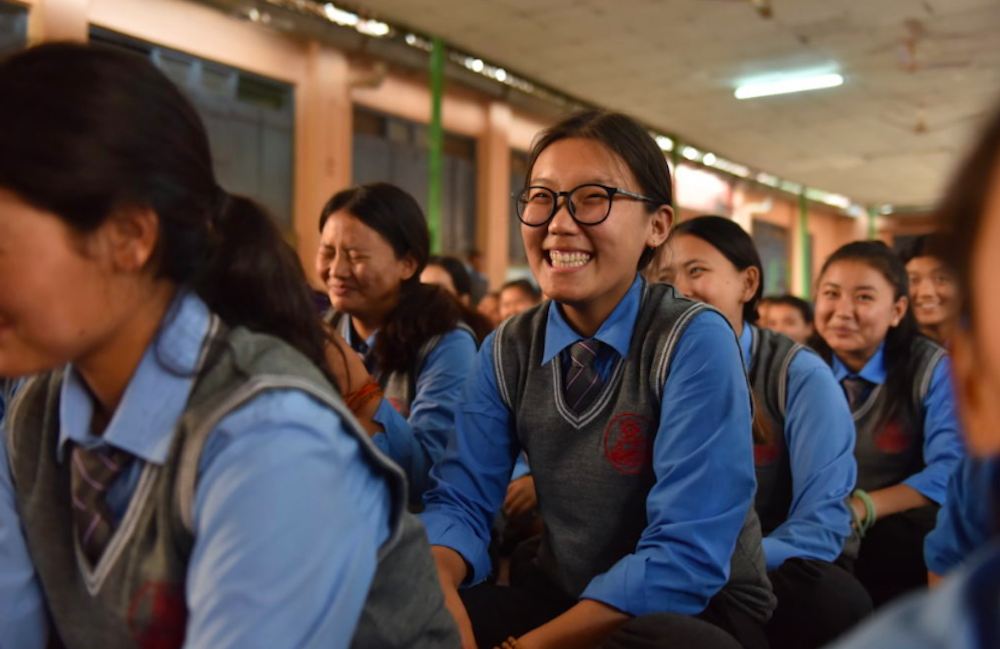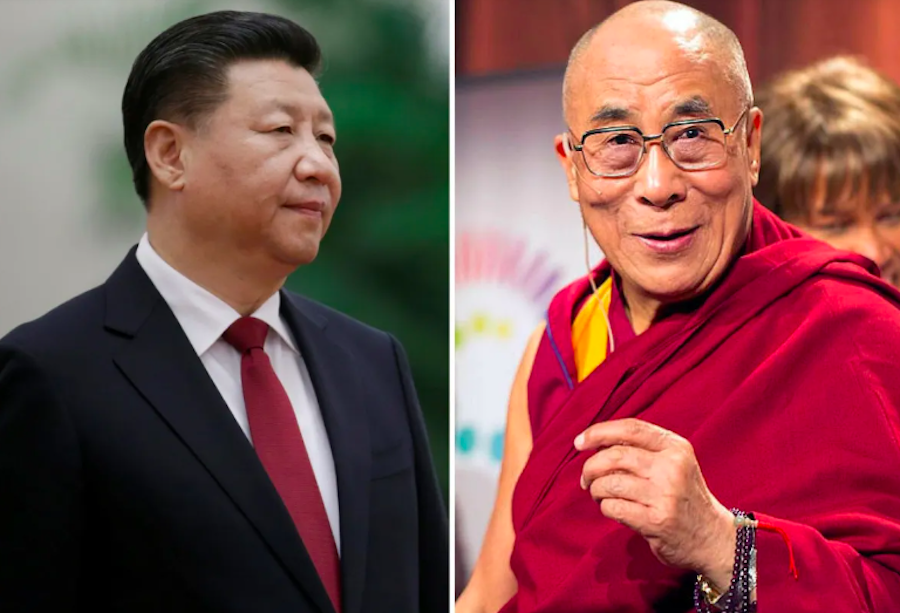On behalf of the 33 organisations, this statement by submitted by Ms. Pauliina Feodoroff, President of Saami Council, Finland at the end of the Seventh Session of the UN Permanent Forum on Indigenous Issues which concluded on 2 May 2008 at the United Nations in New York.
Joint statement
We, the undersigned representatives of indigenous peoples from around the world, in solidarity with the aspirations of the Tibetan people and His Holiness the Dalai Lama, express our deepest sorrow at the unmonitored events unfolding in the homeland of the Tibetan people also known as the “roof of the world.” As we too aspire to pursue the non-violent path to defend our fundamental and ancestral rights, we fully acknowledge the Tibetan people for their steadfast non-violent freedom struggle, now for almost 50 years.
While we offer condolences to innocent civilians, including Chinese settlers and Tibetans who lost their lives on 14 March in Lhasa, the Tibetan capital, in riots and the crackdown which followed, we still believe that the full circumstances of what actually transpired on that day without an independent verification, will unfortunately not reveal the whole truth.
A set of disturbing photographs of Tibetans killed in the Ngapa Tibetan region, now widely available for the world to witness, remind us of many indigenous peoples in this world, who sacrificed their lives to defend their faith, language, culture, history, environment and unique identity.Arbitrary detentions and “surrenders” of Tibetans have already crossed over 4,000 according to official Chinese statements alone while many Tibetans are feared to have disappeared after arrests.
Since 14 March, according to reports, including from Tibetan sources, more than 150 Tibetans have been killed as a direct result of China’s military crackdown on Tibetan demonstrations in the Tibet Autonomous Region and Tibetans areas in Qinghai, Gansu, Sichuan and Yunnan Provinces. We therefore condemn in the strongest term the deployment of an on-going brutal crackdown of a “people’s war” unleashed by the Chinese authorities upon the Tibetan people who collectively expressed a massive Uprising unseen since 1959.
We note that China conducted three separate controlled-visits by the media and foreign diplomats since the demonstrations erupted on the Tibetan Plateau from 10 March onwards. But we remain deeply concerned about the fate of the Tibetan monks who disputed China’s policies in front of the media visits to Lhasa on 28 March and to Lhabrang (Chinese: Xiahe) on 9 April.
In this respect we fully agree with the recent statement by seven Special Procedure Mandate-holders of the UN Human Rights Council that such visits are no substitute to an independent assessment of the urgent situation confronted by the Tibetan people. We call upon the Chinese authorities to receive, without further delay, a joint Mission of all relevant UN human rights experts to ascertain the ground realities of the human rights situation faced by the Tibetan people. We also call on China to immediately receive the UN High Commissioner for Human Rights on a fact-finding mission to all Tibetan areas where demonstrations were suppressed.
As to the present situation, we have no hesitation to believe that sealing off adequate food, medical and other essential supplies to the many monasteries and nunneries is a collective punishment inflicted by China. We therefore call for the withdrawal of the “patriotic re-education sessions” by Communist cadres whereby monks and nuns are forced to confirm that the Dalai Lama “instigated” the present Tibetan Uprising or to denounce their spiritual leader.
Like many in this world, we are equally disturbed by the never ending pronouncements of the Chinese leadership to defame the personality the Dalai Lama, who the vast majority in this world, recognize as a person of high moral authority and a tireless messenger of peace, non-violence and human rights. We believe China and its people must understand that their questions on the sincerity of the Dalai Lama to reach out to the People’s Republic of China will not only strengthen the mistrust of Tibetans but will cast a huge doubt on China’s leadership hopes and its sense of responsibility, especially as a permanent member of the UN Security Council.
Like the Dalai Lama, we also believe the Chinese people fully deserve to host and cherish the Beijing Olympics. However, while holding such a global honour, China’s leader’s must acknowledge that the legitimate rights of Tibetans and Human Rights Defenders in China cannot be trampled by promoting Chinese nationalism.Such a scenario is now being created by the Chinese leadership among the Chinese nationals all over the world whereby the aspiration of the demonstrations in Tibet is labeled as anti-Chinese people. This kind of xenophobic message against the Tibetan people would really go against the whole spirit of the Olympic Games. We also believe that provoking the Tibetan people by running the Olympic Torch on their holy land would be another grave mistake.
Like many in this world, we fully support the growing calls for a negotiated settlement of the Sino-Tibetan conflict through resulted-oriented talks between the Chinese leadership and the Tibetan Government in Exile headed by His Holiness the Dalai Lama. We acknowledge that the Dalai Lama is not seeking the independence of Tibet but genuine self rule within the People’s Republic of China. We solemnly applaud the Dalai Lama for his steadfast Middle Way Approach to reach out to the Chinese leadership to end the long suffering of the Tibetan people.
The indigenous people of the world have recently benefitted from China’s wisdom and leadership which greatly contributed to the adoption of the UN Declaration on the Rights of Indigenous Peoples. For this, we are forever grateful towards China. But furthermore, having first hand experience with China contributing to peaceful settlements between peoples on an international level, we are convinced that China will have the wisdom to find a peaceful agreement with the Tibetan People in line with Dalai Lama’s suggested Middle Way Approach, to the mutual benefit of Chinese and the Tibetan peoples.
As the suffering of the Tibetan people continues, we request our Elders to remember them in their prayers.
- Advocates for the Protection of Sacred Sites (U.S. – California)
- AMAN (Indonesia)
- Assembly of First Nations (Canada)
- Asia Pacific Indigenous Youth Network (India)
- Asocion Nacional Indijena Salvadore Anis (El Salvador)
- Balochistan Peoples Party (Iran)
- Bangsa Adat Alifuru (Maluku)
- Buffalo Rider Dene nation (USA)
- Center for Organization Research and Education (India)
- Chin Human Rights Organization (Burma)
- Eagle Clan Lokunu (Arawaki of Guyana)
- Forest Peoples Programme (The United Kingdom)
- Foundation for Research and Support of Indigenous Peoples of Crimea (Ukraine)
- Hawaii Institute for Human Rights (The United States)
- Huascar M. Cabanillas Habitat-Pro (Quechua Nation – Peru)
- International Work Group for Indigenous Affairs (Denmark)
- Inuit Circumpolar Council (Canada, Greenland, the Russian Federation , the United States)
- Kalahui Hawaii (the United States)
- Mainyoitu Pastrualist Intergrated Development Organisation (Africa)
- Na Koa Ikaika (USA)
- National Network of Indigenous Women (Nepal)
- Netherland Center for Indigenous Peoples (NCIV) (Netherlands)
- Organizacion de Los Pueblos Indigenas Amazonia Colombiana (Colombia)
- Organizacion Wayuumunsurat (Colombia)
- Panama Kuna – Cealp (Panama)
- Quebec Native Women’s Association (Canada)
- The Saami Council (Finland, Norway, the Russian Federation, Sweden)
- The Saami Parliament (Norway)
- Taino Nations of the Antilles (Puero Rico, USA)
- Tawaly Foundation (Libya)
- Ubiratan de Souza Maia – Instituto Kame (Brazil)
- Waikiki Hawaiian Civil Club (the United States)
- Wana Instituto Indiguena Brasilio (Brazil)









